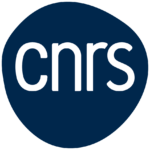
MANOS Thanos (Athanasios)
Member of team :
NEURO
Lieu :
CYU Saint-Martin, A586
Phone :
Biography
Dr T. Manos has a PhD on Applied Mathematics and Physics which was co-directed by the Department of Physics, Université d’Aix-Marseille I (France) and Department of Mathematics, University of Patras (Greece).
He has a bachelor’s degree in mathematics and a master’s degree in applied mathematics from the Department of Mathematics, University of Patras (Greece). After obtaining his PhD, he has worked as post-doctoral researcher at the Max Planck Institute for the Physics of Complex Systems, Dresden (Germany), University of Florence (Italy), University of Nova Gorica (Slovenia), University of Maribor (Slovenia) and as a senior researcher at the Institute of Neuroscience and Medicine (INM-7) at the Research Centre Jülich (Germany).
In September 2019, he started working as Assistant Professor at the Department of Mathematics, CY Cergy Paris Université (France) and since September 1st, 2022, he is holding an Associate Professor (HDR) position at the Department of Mathematics, CY Cergy Paris Université (France). He is currently a member of the ETIS lab of CNRS and his research is on Nonlinear Dynamical Systems and Chaos Theory and Mathematical/Computational Neuroscience (synchronization phenomena, neuromodulation for the treatment of brain abnormal activity, e.g., Parkinson’s disease, Epilepsy, tinnitus, and whole brain dynamics informed by neuroimaging data).
Personal website: https://sites.google.com/site/thanosmanos/
Research activities
- Mathematical & computational neuroscience
- Neuromodulation
- Complex (Nonlinear) dynamical systems
- Whole brain dynamics informed by neuroimaging data
- Synchronization in neural networks
- Synaptic and structural placticity in neural networks
Ongoing projects
T. Manos’ ongoing research activity is in complex (nonlinear) dynamical systems and in mathematical & computational neuroscience. He has worked on neurostimulation and protocols’ optimization for the treatment of brain abnormal activity such as Parkinson’s disease or tinnitus (collaboration with Prof. Peter Tass) as well as the role of the different types of plasticity (e.g., synaptic and structural) in the long-term efficiency of such therapies. He has investigated the implementation and simulation of whole brain dynamical models with realistic large-scale connectivity using EEG/fMRI-based neuroimaging data, and investigation of neuronal dynamics in large subject populations.
In 2021, he acquired a PhD scholarship to investigate “Neural network structure, onset and propagation of epileptic seizures” (Labex MME-DII – PhD cotutelle scholarship together with Prof. Mathias Quoy and Prof. Yulia Timofeeva (Department of Computer Science, University of Warwick, UK).
Since 2020, he has an ongoing collaboration with Prof. Alex Leow, Dr. Chris Antonopoulos and Dr. Sandra Diaz-Pier, on “Reconciling Network Inference and Dynamics with Neuroimaging Data in Alzheimer’s Disease” supported by a Labex MME-DII grant.
In 2023, he acquired an EUTOPIA PhD interantional cotutelle scholarship (topic: “Leveraging neurocomputational models to extract the intracerebral conduction velocity as a novel non-invasive marker of information processing speed in multiple sclerosis) with Prof. Jeroen van Schependom (Laboratorium for Micro- and Photonelectronics Artificial Intelligence supported Modelling in clinical Sciences, Vrije Universiteit Brussel, Belgium),
From September 2023 onwards, he is the primary supervisor of Dr. Cristian Jimenez-Romero (EUTOPIA SIF postdoc) in a new project entilted “Hybrid Neural Networks: combining artificial and spiking neural networks to enhance life-long continuous learning in autonomous agents and robots”. He also participates in the ongoing CY Initiative – CY Generations 2023 research project – “Slow and low dimensional dynamics in the brain” (PI: Alessandro Torcini, LTPM, CY Cergy Paris Université).
In 2024, he acquired a National Institutes of Health R21/R33 research grant (~2.34 Million euros, 5 years) with Prof. Alex Leow, Prof. Orly Lazarov (University Of Illinois Chicago) and Prof. Liang Zhan (University of Pittsburgh). The project title is: “Connecting Neuronal Hyperexcitability and Sex Differences in Alzheimer’s Disease (AD) using biophysically-informed in-silico brain simulations and experimental data from mouse models of AD”.
Publications
- Arbor-TVB: A Novel Multi-Scale Co-Simulation Framework with a Case Study on Neural-Level Seizure Generation and Whole-Brain Propagation
- On the behavior of the Generalized Alignment Index (GALI) method for dissipative systems
- Integration of Large Language Models into Multi-Agent Simulations: Swarm Intelligence and Emergent Behavior
- Combining structural and functional connectomes to estimate changes in excitatory and inhibitory activity in people with Multiple Sclerosis


